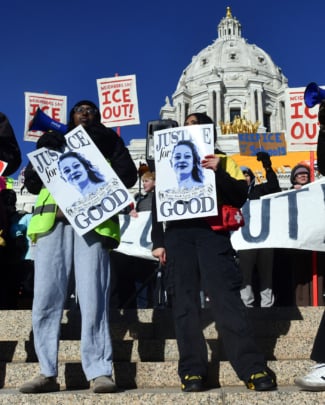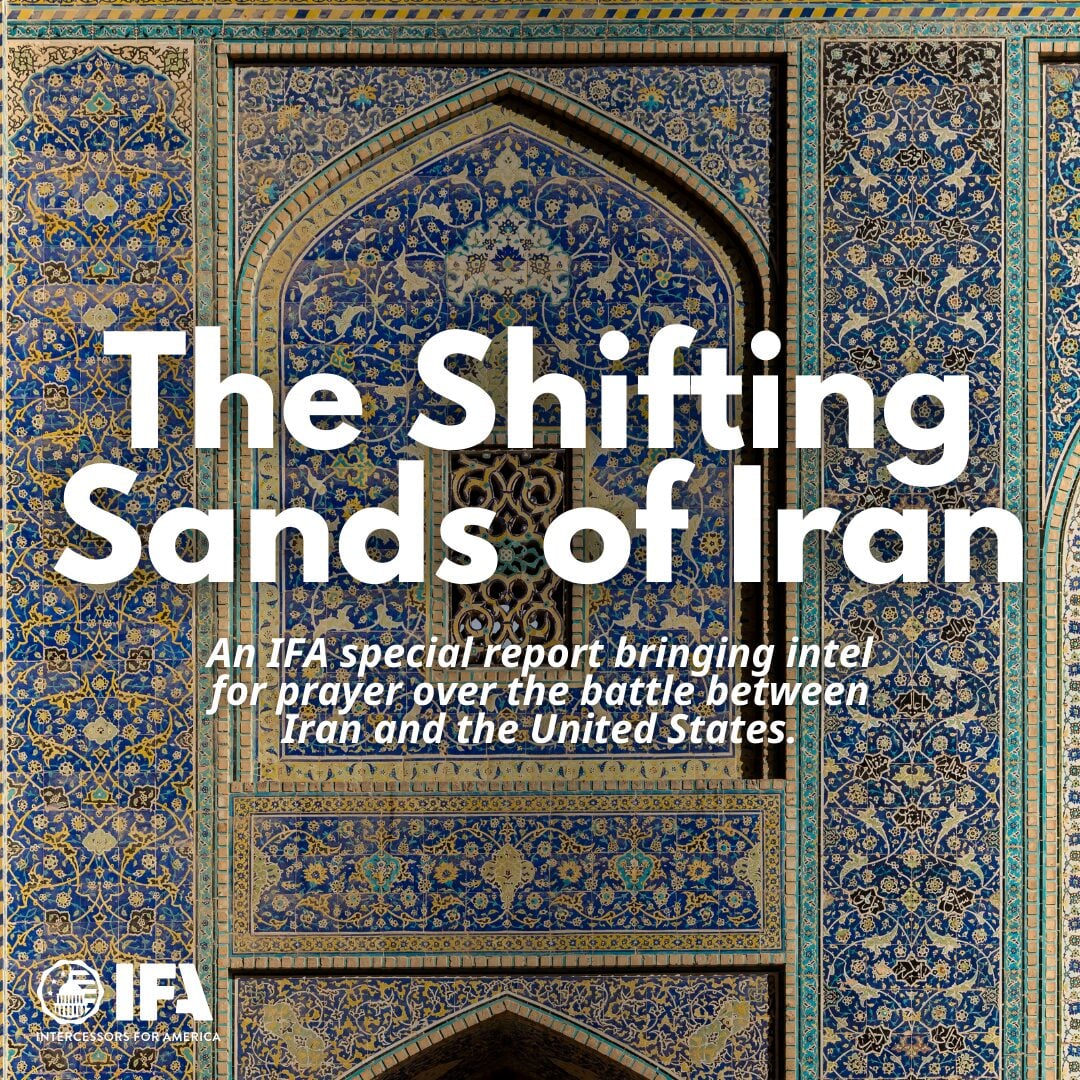THAT THEY MAY ALL BE ONE
COVID VACCINE LINK TO INFANTICIDE–A TRUE HORROR STORY
VACCINATIONS AND THE ORIGINAL CONSCIENTIOUS OBJECTORS
THE KEY TO OVERCOMING ABORTION
YOUR VOICE MATTERS: D.C. FEARS THE POWER OF THE PEOPLE
THAT THEY MAY ALL BE ONE
The scene is one of the most poignant ones in all of Jesus’ ministry. It is the eve of Passover, the most sacred of Jewish holidays, and the culmination of His mission.
One last time, He has gathered His inner circle of disciples in an upper room for a meal and final instructions before giving Himself up to be betrayed, tortured, and executed on the cross to take away the sin of the world.
The gospel writers give different accounts of what happened that night. Matthew, Mark, and Luke all describe similar details: the institution of the Lord’s Supper, some final discourses, the foretelling of Judas’ betrayal and the denial by Peter, the foot-washing. Only John emphasizes the in-depth final teachings that Jesus gave and adds a lengthy prayer that Bible translators have headlined as the “High Priestly Prayer. It is recorded in its entirety in John 17. Jesus prayed it at the conclusion of the Last Supper, in the presence of His disciples. It contains elements of blessing, dedication, commissioning, and intercession. Jesus, the High Priest, prays for the future ekklesia, the community of faith that is to be called together from every tribe, tongue, and nation.
One of the most important requests that Jesus makes to the Father for the future ekklesia is that they may be one, just as He and the Father are one:
“I do not ask for these only, but also for those who will believe in me through their word, that they may all be one, just as you, Father, are in me, and I in you, that they also may be in us, so that the world may believe that you have sent me. The glory that you have given me I have given to them, that they may be one even as we are one, I in them and you in me, that they may become perfectly one, so that the world may know that you sent me and loved them even as you loved me.” (John 17:20-24)
With those words, He expresses both His desire for His children to be one of heart and mind in the same way that the Son is one with the Father and His anguish in foreseeing that as being one of the biggest problems that would plague the Church through the ages. Indeed, nothing seems to have been more under attack than the unity among Christians.
Off to a good start
After Jesus fulfilled His mission on the cross, was raised from the dead and, forty days later, taken up into heaven from where he sent His promised Holy Spirit a short while later, Christianity began as a movement on the streets of Jerusalem. Daily meetings, bold preaching, signs and wonders, miraculous healings.
The main thing that attracted attention, however, was the unity of the believers. Look at Acts 2: 44-47 and Acts 4:32-35
“And all who believed were together and had all things in common. And they were selling their possessions and belongings and distributing the proceeds to all, as any had need. And day by day, attending the temple together and breaking bread in their homes, they received their food with glad and generous hearts, praising God and having favor with all the people. And the Lord added to their number day by day those who were being saved.“
“Now the full number of those who believed were of one heart and soul, and no one said that any of the things that belonged to him was his own, but they had everything in common. And with great power the apostles were giving their testimony to the resurrection of the Lord Jesus, and great grace was upon them all. There was not a needy person among them, for as many as were owners of lands or houses sold them and brought the proceeds of what was sold and laid it at the apostles’ feet, and it was distributed to each as any had need.”
Now that attracted attention. Judaism was known for its individualism and competitive commerce. The idea that believers in God were selling possessions, pooling all their resources, and had an obvious love for one another was a novelty. And it demonstrated from the get-go why unity was an essential element for the Christian gospel.
As the gospel spread throughout Asia Minor and Greece and networks of churches were being planted, the apostles busied themselves instructing and admonishing the new believers. Especially the apostle Paul. Perhaps not surprisingly, unity was a recurring theme:
“I, therefore, a prisoner for the Lord, urge you to walk in a manner worthy of the calling to which you have been called, with all humility and gentleness, with patience, bearing with one another in love, eager to maintain the unity of the Spirit in the bond of peace. There is one body and one Spirit—just as you were called to the one hope that belongs to your call— one Lord, one faith, one baptism, one God and Father of all, who is over all and through all and in all. “ Ephesians 4:1-6
“So if there is any encouragement in Christ, any comfort from love, any participation in the Spirit, any affection and sympathy, complete my joy by being of the same mind, having the same love, being in full accord and of one mind.” Philippians 2:1
 These admonitions reflect the kind of unity Jesus prayed for: one mind, one accord, driven by affection, sympathy, patience, humility, and love – because we share the same Spirit, baptism, hope, call, Body, and worship the same God and Father.
These admonitions reflect the kind of unity Jesus prayed for: one mind, one accord, driven by affection, sympathy, patience, humility, and love – because we share the same Spirit, baptism, hope, call, Body, and worship the same God and Father.
The crucial importance of unity among believers
There are four main reasons why unity is essential among Christian believers, and why Satan attacks it so much:
- It reflects the unity within the Trinity :” that they may all be perfectly one as we are one” The visible unity of believers reflects the invisible unity of the Father, the Son, and the Holy Spirit.
- It lends credibility to the gospel. Infighting, strife, division, competition, and jealousy are the antitheses of love. Nor do they reflect the love of God. A gospel that preaches the love of Christ for the world can only be believed if it is preached with love. People who see the obvious presence of love among Christians are more apt to listen to them.
- It provides the frame of operation for the ekklesia. In 1 Corinthians 12-14 Paul lays out how the community of believers is the Body of Christ- all individually members, with different gifts that are sovereignly appointed by the Holy Spirit, and interdependent on one another for the practice of those gifts to build faith. He explains the purpose in 1 Corinthians 12:25: “…that there may be no division in the body, but that the members may have the same care for one another.”
- It increases spiritual power. There are several references to united prayer. The most famous on is Matthew 18:19: “Again I say to you, if two of you agree on earth about anything they ask, it will be done for them by my Father in heaven.” There is power in agreement because God prizes unity among believers, as a visible expression of the love in their hearts, above all else. Likewise there is weakness in division and strife – they undermine the prayer power of the Church like nothing else will.
If unity is so important, why are we so divided?
I see two main reasons for the history of the Church to be marred so much by division. First, division happens when we try to follow Christ in the flesh. Look at what Paul says in Galatians 5:19-21:
“Now the works of the flesh are evident: sexual immorality, impurity, sensuality, idolatry, sorcery, enmity, strife, jealousy, fits of anger, rivalries, dissensions, divisions, envy, drunkenness, orgies, and things like these. I warn you, as I warned you before, that those who do such things will not inherit the kingdom of God.”
What I have underlined in this text are the ingredients of division. When we disagree over minor points of doctrine, political views, or church organization we undermine the unity Christ intended for His Body. When we organize ourselves based on outward things like race, ethnicity, economic status, the fame of a pastor, or even ministry emphasis, we undermine unity. When become jealous of another church or ministry because of their apparent success, we undermine unity. When we look down on another church or ministry because of their apparent lack of success, we undermine unity. When we turn inward and only focus on what’s happening on our campus and fail to see ourselves as part of a worldwide Body of believers, we undermine unity. And of course, when our disagreements turn into fights, church splits, lawsuits, and rivalries splattered all over the news, we undermine the unity Christ expects from us. Even the world understands that these are not outward expressions of love that are supposed to be our most recognizable trait.
When I look at history, I can’t help but think that the more institutionalized the church became, the more its vulnerability to divisions increased. Institutions tend to become over-organized, rigid, controlling, and dogmatic. Over time their dogmas, policies, rules, and regulations become their God. That was the case with Judaism in Jesus’ day, and Christianity has had the tendency to repeat that pattern. Perhaps because religion is easier and more predictable than relationship, systems to control how people behave and what they believe are safer than diversity, and following the letter is easier than keeping in step with the Holy Spirit.
The second reason is, that Satan attacks unity among believers where He can because division weakens the things He fears: worship, united prayer, and the love of Christ made visible by a harmonious church. Frankly, he doesn’t have to work at it too hard. We do most of the dividing ourselves, and all he has to do is stir the pot. But where there is love, cooperation, and unity, He will always employ any means possible to find weak spots and stir up strife and division.
Unity versus uniformity
I would be remiss if I didn’t interject a caveat here: unity does not mean uniformity. The global ekklesia consists of many varieties of ethnicity, color, language, culture, ministry types. worship styles and what have you. Yet we are united in our hearts by all the elements I described above.
That is the beauty of it all: unity in diversity. I think it reflects the nature and character of God. He didn’t create just one type of flower, for instance, or one type of animal. No. There are over 400,000 species of flowers, more than 60,000 types of trees, and more than 8 million animals!
I fondly remember some of our large prayer rallies for revival, a few decades ago now. Thousands of people from hundreds of churches crying out to God with one voice. People of different races, cultures, languages, denominations, and doctrines, who could potentially be at loggerheads with each other praying hand in hand, in agreement.
Similar things happened during Pastors” Prayer Summits – four-day retreats for pastors from a given city or county with nothing but unscripted worship and prayer. At the outset, all would be quick to emphasize their churches, ministries, or denomination, and address God as pastors. But as we worshipped, a remarkable shift would occur. Conviction of sin would set in, followed by confession and humility. They moved from being pastors to being brothers. A “mercy seat” would be placed in their midst and before long, they would vie to sit on it so that they could be prayed over. And by the end of the Summit, they would be strategizing how they could stay connected in prayer and work together to advance the gospel in their community.
When we take our eyes off each other and our outward appearances and focus them on God, unity occurs.
Unity in our day
So what’s the answer? How does the Christian Church that appears to be getting increasingly divided, especially here in the US, return to the communal spirit that Jesus prayed for and that characterized the believers in the early Jerusalem movement?
There are most likely many answers. More than my limited brain can dream up or comprehend. I have only three:
- God’s Church as it exists by biblical standards, is more united than she seems. As I implied in my previous post, the organizations, institutions, campuses, buildings, denominations, church associations, doctrines, dogmas, rules, regulations, and hierarchies that call themselves Christian, are not the Church-with-a-capital-C. they are not the ekklesia. His Church is till a movement that runs in part through those institutions, and in part alongside them. It is made up of people who have repented, turned to Christ, are born again, redeemed, sealed, filled and gifted by the Holy Spirit, and walk with Him deeply and daily. From time to time, like in prayer gatherings like the ones I described above, they come out of the woodwork. But for the most part they stay under the radar – quietly praying, serving, giving, and sharing Christ. Their influence far outpaces that of the Christian institution, and will one day come to light.
- Unity grows where people, including Christians, humble themselves, take their eyes off each other, turn to God and seek Him with all their might. It opens their hearts to receive the life and love of God that has the compassion, selflessness, patience, kindness, humility, and shared vision and passion for Christ that foster unity. Unity cannot be attained in our own strength. It is worked in us by the Holy Spirit. So where we keep in step with Him, unity grows and blooms. It begins in our heart, and overflows to other.
So we must earnestly seek Him and return to the basics of Christ-centered worship, the centrality of prayer and meditation on the Word, loving, interdependent community, and passionate mission. - Be vigilant and recognize that Satan will attack unity where he can. So even though God moves and changes our heart to unite us, that unity must be maintained. We must be intentional in pursuing peace with fellow believers and thus maintain the bond of unity. We must be quick to pray and ask God to help us when we falter. We must pray together more as congregations to withstand Satan’s work among us to divide and destroy.
My burden and prayer for the church in the US and around the world is for God to ignite a thirst for Him in our hearts that will move us to unite in seeking Him and walking with Him. That is the type of revival I pray for, especially here in the US.
Jesus’ prayer of 2,000 years ago has not been forgotten. I’m convinced that God is uniting His people. It is up to us to shed our outward differences, our individualism, to cease our strife and dissension to seek Him and trust Him to work it out in us and among us.
(Used with permission. Article by Remco Brommet. Originally published at Deeper Life Blog.)
Partner with Us
Intercessors for America is the trusted resource for millions of people across the United States committed to praying for our nation. If you have benefited from IFA's resources and community, please consider joining us as a monthly support partner. As a 501(c)3 organization, it's through your support that all this possible.


We use cookies to ensure that we give you the best experience on our website. If you continue to use this site we will assume that you are happy with it. Privacy Policy




Comments
No comments have been posted yet; you can be the first!